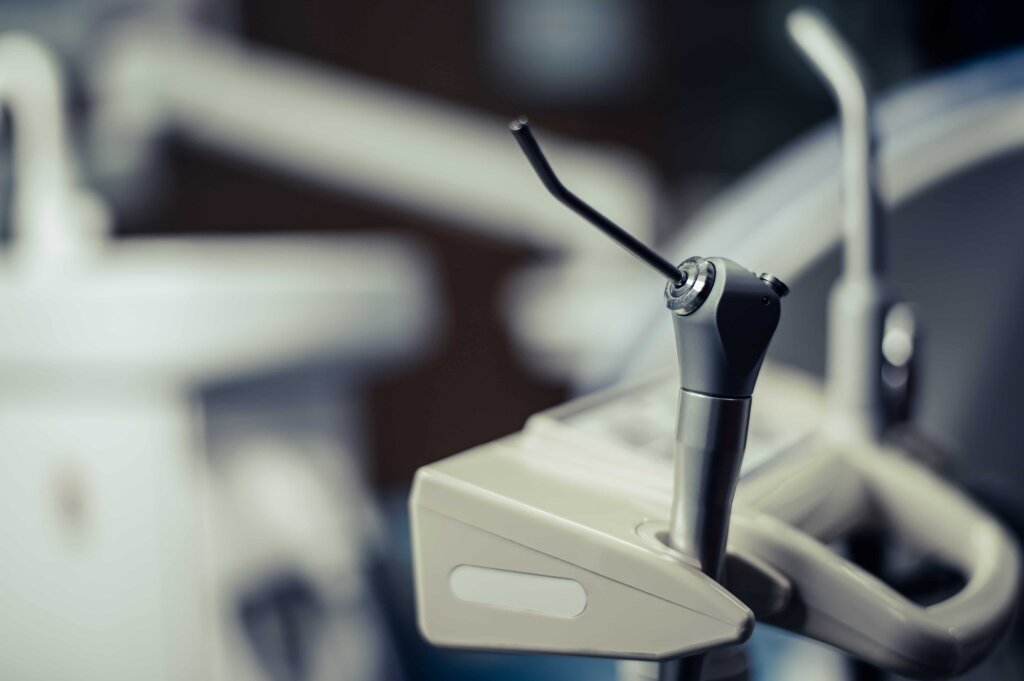Diş Kaplamaları Nelerdir? Bilmeniz Gereken Her Şey
Diş kaplaması, zarar görmüş veya zayıflamış dişler için güvenilir bir çözüm sunar. Bu özel yapım kapaklar, dişin gücünü ve görünümünü geri kazandırarak diş sağlığınızı yıllarca korur. İster yapısal sorunları ele alıyor olun, ister gülümsemenizi güzelleştiriyor olun, kaplamalar optimal ağız bakımına ulaşmada önemli bir rol oynar. Estetik ile dayanıklılığı birleştiren zirkonyum diş kaplamaları gibi gelişmiş seçenekler hakkında daha fazla bilgi edinin.
Diş Kaplamalarını Anlamak
Diş kaplamaları, zarar görmüş, zayıflamış veya kozmetik olarak tatmin edici olmayan dişlere sahip bireyler için önemli bir diş çözümüdür. Çok yönlülükleri ve etkinlikleri, onları restoratif diş hekimliği programlarının kilit bileşenlerinden yapar. Aşağıda, diş kaplamaları ve uygulamaları hakkında bilmeniz gereken her şeyi ayrıntılı olarak açıklıyoruz.
Diş Kaplamaları Nelerdir?
Diş kaplamaları, tüm dişi çevrelemek için tasarlanmış diş şeklinde kapaklardır. Zirkonyum, seramik veya metal gibi dayanıklı malzemelerden yapılan bu kaplamalar, dişin fonksiyonunu, görünümünü ve yapısını geri kazandırır.
Diş kaplamasını dişiniz için koruyucu bir kask gibi düşünün. Çürük, fiziksel travma veya aşınma dişin bütünlüğünü tehdit ettiğinde, kaplamalar yapıyı korumak için devreye girer. Sadece korumakla kalmaz, aynı zamanda doğal estetiği de artırarak restoratif ve kozmetik diş hekimliğinde vazgeçilmez hale getirir. Zirkonyum diş kaplamaları gibi modern seçenekler, dayanıklılık ve daha doğal bir görünüm sunmaları nedeniyle popülerlik kazanmıştır.
Diş Kaplamaları Neden Kullanılır?
Diş hekimleri, çeşitli nedenlerle diş kaplamalarını önerirler. İşte en yaygın senaryolardan bazıları:
Ağır Diş Çürüğü: Bir diş, dolgu veya diğer küçük prosedürler için çok zarar görmüşse.
Kırık veya Çatlamış Dişler: Kırılmış veya çatlamış dişleri işlevsel hale getirmek için.
Kanal Tedavisi Sonrası: Kanal tedavisinde enfeksiyon temizlendikten sonra, kaplama dişi mühürlemeye ve korumaya yardımcı olur.
Büyük Dolgular: Kalan diş yapısının minimal olduğu büyük dolgulara sahip dişleri desteklemek ve korumak için.
Kozmetik Geliştirmeler: Lekeli, şekilsiz veya başka şekilde tatmin edici olmayan dişleri düzeltmek için.
Kaplamalar, dişlerinizin hem sağlığını hem de görünümünü korumanıza yardımcı olur. Geniş bir yapısal ve estetik sorun yelpazesini ele alabilirler. Çözümleri araştırıyorsanız, uzun ömürlü estetik zirkonyum kaplamalar gibi seçenekleri değerlendirmeye değer.
Diş Kaplamalarının Türleri
Diş kaplamaları, her biri belirli ihtiyaçlara ve tercihlere uygun çeşitli malzemelerden gelir. Estetik çekiciliklerinden dayanıklılığa kadar, seçeceğiniz kaplama türü, dişlerinizin konumu ve istediğiniz sonuçlar gibi birkaç faktöre bağlıdır. İşte bugün en popüler seçenekler:
Porselen Kaplamalar
Porselen kaplamalar, özellikle doğal görünümlü bir son tercih edenler için popüler bir seçimdir. Bu kaplamalar, doğal dişlerin görünümünü yakından taklit eden seramik malzemeden üretilir. Porselen kaplamalar, gülümsemenize mükemmel estetik sonuçlar sunarak sorunsuz bir şekilde uyum sağlar.
Porselen kaplamaların faydaları:
Doğal Görünüm: Ön dişler veya estetiğin ön planda olduğu bölgeler için idealdir.
Biyouyumluluk: Porselen kaplamalar metal içermez, alerjik reaksiyon riskini azaltır.
Leke Direnci: Malzemeleri günlük aşınmaya ve yiyecek veya içeceklerden kaynaklanan lekelere karşı dirençlidir.
Porselen kaplamalar, kozmetik diş hekimliği için çok yönlü ve pratik bir çözümdür. Daha derin bir karşılaştırma için, ihtiyaçlarınıza en uygun olanı bulmak adına Zirkonyum vs. Porselen Kaplamalar konusundaki rehberimizi inceleyebilirsiniz.
Metal Kaplamalar
Metal kaplamalar, olağanüstü dayanıklılıkları ile bilinir ve genellikle azıcık çiğneme baskısına maruz kalan azı dişlerinde veya dişlerde kullanılır. Altın, paladyum, nikel veya krom gibi metallerden yapılan bu kaplamalar, arka dişler için gerekli gücü sağlar.
Metal kaplamaların avantajları:
Yüksek Dayanıklılık: Aşınmaya dayanır ve yıllarca, hatta on yıllarca dayanabilir.
Daha Az Diş Çıkarılması: Diğer kaplamalara kıyasla mevcut diş yapısının minimum çıkartılmasını gerektirir.
Güçlü Performans: Ağır ısırma veya diş gıcırdatma durumlarına uygun ideal bir seçenektir.
Metal kaplamalar doğal dişlerin görünümünü taklit etmese de, performansları belirli durumlar için güvenilir bir seçenek sunar. Modern alternatiflerle, örneğin zirkonyum kaplamalarla nasıl karşılaştırıldıkları hakkında daha fazla bilgi edinin.
Zirkonyum Kaplamalar
Zirkonyum kaplamalar, diş estetiği ve işlevselliğinde devrim yaratmaktadır. Metal içermeyen bir çözüm olarak, bu kaplamalar gücü doğal bir bitişle birleştirir ve premium diş restorasyonları arayanlar için tercih edilen seçenek haline gelir.
Zirkonyum kaplamaların temel faydaları:
Olağanüstü Dayanıklılık: Çatlaklara, aşınmaya ve kırılmaya karşı son derece dirençlidir, uzun ömürlü koruma sağlar.
Estetik Çekicilik: Dişlerin doğal transparanlığını taklit eder, gerçek dişlerden ayırt edilemez hale getirir.
Hipoalerjenik: Metal alerjisi veya hassasiyeti olan hastalar için uygundur.
Mükemmel Uyum: Pürüzsüz, güvenli bir uyum için hassasiyetle tasarlanmıştır.
Zirkonyum kaplamalar, işlevsellik ve güzelliği kusursuz bir şekilde birleştirerek hem sağlık hem de görünüm için modern bir çözüm sunar. Zirkonyum Kaplamaların Faydalarını Keşfedin başlıklı detaylı sayfamızda faydaları hakkında daha fazla bilgi edinin.
Bu kaplama türlerini inceleyerek, diş ihtiyaçlarınızı en uygun çözümle uyumlu hale getirebilirsiniz.
Diş Kaplaması Alma Prosedürü
Diş kaplaması ile gülümsemenizi restore etme yolculuğu, dikkatlice yürütülen birkaç adımı içerir. Her aşama, kaplamanın sorunsuz bir şekilde oturmasını ve mükemmel bir şekilde çalışmasını sağlar. İşte diş kaplaması sürecinde neler bekleyebileceğiniz hakkında daha yakından bir bakış.
İlk Konsültasyon ve Değerlendirme
Diş kaplaması yolculuğunuz, ayrıntılı bir konsültasyonla başlar. İlk ziyarette, en iyi tedavi planını belirlemek için etkilenen dişi inceleriz. Diş hekimi, yapıyı ve çevre dokuyu değerlendirir, kök ve çene kemiği durumunu görmek için gerekirse röntgen kullanır. Bu, diş kaplamasının ihtiyaçlarınız için ideal bir seçenek olduğunu garanti eder.
Bu adım, dişinizin işlevselliğini ve görünümünü korumak için neye ihtiyaç duyduğunu anlamakla ilgilidir. Gerekirse, diş ihtiyaçlarınıza daha uygun olabilecek alternatif tedaviler de tartışılabilir. Bu süreci anlamak için Türkiye’nin Uygun Fiyatlı Kaliteli Diş Kaplamalarında Lider Olmasının Nedenleri rehberimizi inceleyebilirsiniz.
Kaplama Hazırlık Süreci
Kaplama doğru seçim olduğu doğrulandıktan sonra hazırlık başlar. Diş hekimi, kaplama için stabil bir zemin sağlamak amacıyla dişi düzgünleştirir ve yeniden şekillendirir. Bu adım genellikle, kaplamanın yakın dişleri etkilemeden oturması için mevcut diş yapısının bir kısmının çıkarılmasını içerir. Diş yapısı önemli ölçüde zarar görmüşse, sağlam bir temel oluşturmak için dolgu malzemesi kullanabiliriz.
Hazırlanan dişin bir kalıbı alınır ve özel kaplama üretimi için laboratuvara gönderilir. Bu, kaplamanın sıkı oturmasını ve doğal dişlerinizin görünümünü taklit etmesini sağlar. Dayanıklılık ve zarafeti birleştiren zirkonyum kaplamalar için, Zirkonyum Kaplamalar: Adım Adım Süreç başlıklı özelliğimizde adım adım detaylara göz atabilirsiniz.
Kaplamanın Son Yerleştirilmesi
Özel yapım kaplamanız hazır olduğunda, son adıma geçilir—kaplamanın yerleştirilmesi. Bu ziyarette, kaplamanın estetik ve işlevsel olarak mükemmel uyduğundan emin oluruz. Isırma hizalamasını iyileştirmek ve rahatsızlığı önlemek için ayarlamalar yapılır. Her şey onaylandıktan sonra, kaplama, dişe kalıcı olarak diş harcı kullanılarak sabitlenir.
Bu özenli süreç, diş kaplamalarını zarar görmüş dişleri restore etmek için mükemmel bir çözüm haline getirir. Doğru bakım yöntemlerini takip ederek, kaplamanız on yıl veya daha uzun süre dayanabilir. Türkiye’de Tedavi Sonrası Diş Kaplamalarınıza Nasıl Bakılır başlıklı yazımızda tedavi sonrası bakım hakkında bilgi edinebilirsiniz.
Diş Kaplamanıza Bakım
Diş kaplamasına zaman ve özen yatırdıktan sonra, uzun ömürlü olması ve ağzınızın genel sağlığı için doğru bakım yapmak çok önemlidir. Kaplamalar dayanıklı olsalar da, zarar görmesini önlemek ve komplikasyonlardan kaçınmak için dikkatli bakım gerektirirler. Birkaç tutarlı alışkanlıkla, diş kaplamanızı mükemmel durumda tutmak, ağız hijyen rutininizin kolay bir parçası haline gelir.
Günlük Ağız Hijyeni Uygulamaları
Doğru günlük ağız hijyeni, diş kaplamanızın yıllarca dayanmasını sağlamak için ilk savunma hattınızdır. Onu doğal bir diş gibi tedavi edin—ama birkaç özel dikkate almayla:
Düzenli Fırçalama: Yumuşak kıllı bir diş fırçası kullanarak kaplamanızı ve çevresindeki dişleri günde en az iki kez temizleyin. Bu, plağı giderirken diş etlerinize nazik davranır.
Günde Bir Kez Diş İpi Kullanımı: İpi atlamayın! Kaplamalı dişiniz ile komşu dişler arasını temizlemeyi unutmayın.
Nazik Temizlik Ürünleri Kullanımı: Kaplamanın yüzeyini çizebilecek aşındırıcı içerikli diş macunlarından kaçının. Nazik alternatifler, kaplamanın bitişini korumaya yardımcı olur.
Ağız Gargarası ile Durulama: Kaplama çevresindeki bakterileri azaltmak için alkolsüz antiseptik bir ağız gargarası kullanın.
Profesyonel Temizlikler: Kapsamlı bakım için düzenli diş kontrolleri ve temizlemeleri planlayın. Bu, herhangi bir sorunu erken tespit etmeye de yardımcı olur. Zirkonyum Kaplamalar Sonrası Bakım: Diş Etlerinizi Nasıl Sağlıklı Tutarsınız başlıklı makalemizi ziyaret ederek kaplamalarınızın etrafındaki diş eti sağlığını nasıl koruyacağınız hakkında detaylı tavsiyeler alabilirsiniz.
Tutarlılıktan bahsediyoruz—küçük günlük çabalar, kaplamanızı koruyabilir ve ağzınızı yıllarca sağlıklı tutabilir.
Diş Kaplamaları ile Kaçınılması Gereken Gıdalar
Diyetiniz, diş kaplamanızın aşınmasını ve yıpranmasını önlemede önemli bir rol oynar. Kaplamalar çiğneme baskısına dayanacak şekilde tasarlanmış olsa da, belirli yiyecekler hala onları zarar verebilir veya gevşetebilir. Dikkat edilmesi gereken yiyecek örneklerine bir göz atalım:
Yapışkan veya Çiğnenmesi Güç Yiyecekler: Toffee, sakız ve karamel gibi yiyecekler kaplamanıza çekişebilir, bu da bağını gevşetebilir.
Sert Yiyecekler: Buz, patlamış mısır çekirdekleri veya sert şekerler çiğnemek kaplamanın yüzeyini çatlatabilir veya kırabilir.
Şekerli Yiyecekler ve İçecekler: Aşırı şeker, kaplama etrafında plak birikimine yol açar ve altta yatan dişlerde çürük riskini artırır.
Çok Asidik Yiyecekler: Limon, sirke veya diğer asidik seçenekleri sınırlayın; özellikle kaplama yerleştirildikten sonra çevre diş etlerini tahriş edebilirler.
Yeme sırasında dikkatli olmak anahtardır! Yemeklerin tadını çıkarma ile diş kaplamanızı koruma arasında mükemmel dengeyi sağlarsanız, kaplamanızın dayanıklılığını yıllarca korumuş olursunuz. Zirkonyum Kaplamaların Dayanıklılığı: Gülümsemenizi Yıllarca Koruyun başlıklı makalemizi inceleyerek günlük bakım ipuçları da dahil olmak üzere kaplamaların dayanıklılığı hakkında daha fazla bilgi edinebilirsiniz.
Böyle basit adımlar atmak, daha sağlıklı ve daha parlak bir gülümseme elde etme yatırımınızı korumanın en iyi yoludur.






